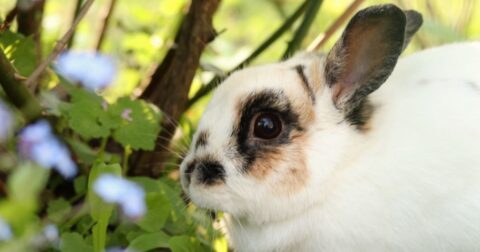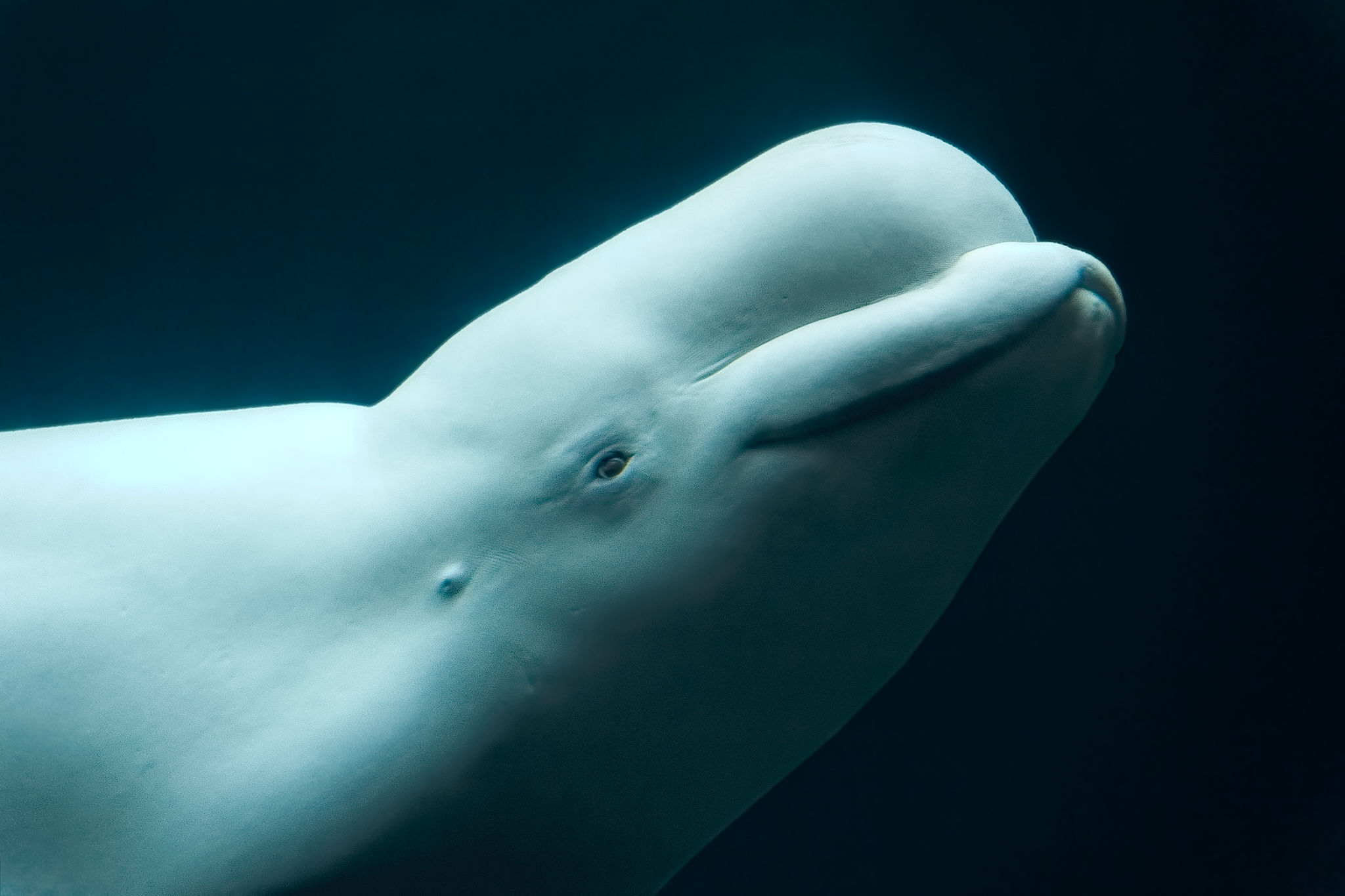News
GLP-1 Users Lose Weight, and Their Taste for Meat
Research•3 min read
Explainer
It’s a cruel logic that results in the most affectionate creatures being punished the most, but sadly, that’s how it’s often turned out.


Words by Seth Millstein
The animal kingdom is wildly eclectic and infinitely diverse. There are millions of different species on this planet, and millions of different personalities, character traits and demeanors among them. The friendliest, most gentle animals are some of the most beloved — but unfortunately, they’re also some of the most likely to be held captive and abused by humans for industrial purposes.
To call an animal “friendly” can mean a number of things, but in general, we consider an animal to be friendly if it shows affection and care for others, has the ability to co-exist peacefully with other species and is able to form long-lasting bonds. Many animals demonstrate these attributes with regard to humans specifically, such as dogs and cats; others, like capybaras and swans, are friendly towards just about any other creature they encounter.
While many animals could be reasonably described as friendly, here are some of the most notable ones.
Despite the horrific ways that humans treat cattle, cows are friendly and affectionate towards people when provided with a safe and pleasant environment in which to live. That’s unfortunately not at all the case on factory farms, but in more healthy environments, cows show affection to humans and each other. Cows even have best friends within their herds, and these friendships can last for years.
The largest rodents in the world, capybaras have become increasingly popular on social media in recent years thanks to their laid-back, relaxed demeanor and friendly interactions with other animals. Commonly seen with a stress-free, unbothered expression on their faces, capybaras are semi-aquatic creatures who like interacting with humans — as well as dogs, cats, monkeys turtles and almost any other creature you can imagine.
Guinea pigs — who aren’t pigs and don’t come from Guinea — are known as one of the most friendly and affectionate animals, making them a popular pet for young children. They’re gentle and curious creatures who enjoy playing with humans, and will often cuddle with their owners.
Sadly, the docility of guinea pigs is one reason why they’re commonly selected as test subjects for cosmetics and medicine, a process that often inflicts unfathomable pain and suffering on them.
As prey animals, bunny rabbits don’t like being picked up, which can give the impression that they’re stand-offish or cold. But that couldn’t be further from the truth, as rabbits are some of the most friendly and loving creatures in the animal kingdom. Domesticated rabbits love to play with their humans, and will get depressed if they don’t get to do so on a regular basis. They’ll often sit next to their owners on the couch, and have been known to purr contentedly while being pet.
Like guinea pigs, rabbits are also common test subjects for scientists.
The dragons of lore are fearsome and terrifying creatures that can incinerate humans with one puff of the nose. Bearded dragons, on the other hand, are kind and docile animals who socialize with humans and develop relationships with them over time. In the same way a dog will run to the front door, bearded dragons will come to the front of their enclosure when their owner comes home to greet them.

Beluga whales are curious creatures, and they seem to be especially curious about humans. In the wild, they’ll often swim alongside boats and observe the passengers in them, hang out in shallow waters near swimmers, and approach scuba divers in a manner that’s been described as “playful.” In one remarkable incident, a captive Beluga saved the life of a woman who lost motor function in her legs underwater.
Humans and dogs share a relationship that’s unlike any other in nature. The first animals to be domesticated, dogs coevolved with humans and played a crucial role in the success of early human societies by serving as guard dogs, hunting partners and providers of warmth. Studies have shown that humans and dogs both experience oxytocin surges while playing with each other, and that’s just one of many remarkable aspects of the human-canine relationship.
A lesser-known fact is that dogs are also commonly used as test subjects in scientific research.
The idea that the common house cat — or felis catus, as they’re officially known — is friendly may come as a surprise to anybody who’s ever been scratched or bitten by one. But that’s a narrow way of looking at things (and not only because cat bites are usually a show of affection). So long as they have a sense of safety and security, cats are remarkably friendly and affectionate to the humans that they trust. This was quantified in a 2017 study, which found that cats, when given the choice between food or spending time with humans, consistently preferred the company of humans.
A 2015 study suggested that sheep enjoy being pet by humans — and if you’ve ever been to a farm sanctuary, you don’t need a study to know that. Sheep form close bonds with the people who tend to them, and there’s evidence that they’re even better at interpreting human facial expressions than dogs. Axel Lindh, an author who abandoned his cosmopolitan life to become a sheep farmer, has said that if you spend enough time around sheep, “you become part of the flock.”
Due not just to their coats but also their docile nature, sheep have also long been domesticated. Unfortunately, industrialized shearing is often extremely harmful to sheep, as is the production of lamb meat.
Horses are sometimes referred to as big dogs, and while that’s not literally true, many have noted parallels between the two, especially with regard to how they interact with humans. Like dogs, horses can interpret human facial expressions, and will trot over to greet their owners when they present themselves. A horse’s heart rate and breathing will decrease, indicating relaxation and trust, when in the presence of their owner, and they’ll even “groom” humans that they like by nibbling on them, nudging them in the back, or laying on their heads on the humans’ shoulders.
Because of their friendly nature and strength, horses have long been domesticated. Unfortunately, they are still used in gelatin, collagen and other foods — and are all too often abused for their labor.
Like capybaras, swans are notoriously inclusive creatures that get along well with a wide variety of other species, including ducks, beavers, turtles and mallards. In one experiment, swans were taken to a lake in Alabama in the hopes that they’d scare off the geese, but the plan backfired when the swans and geese became friends. Swans will sometimes greet familiar humans with their famous “trumpet” call, and although they’ll protect their young as any species would, they’re otherwise not aggressive toward humans.
Another animal known for forming interspecies relationships, llamas are affectionate toward humans and other animals alike. Often described as having an “aristocratic” demeanor, llamas’ kind and gentle behavior towards humans is likely one reason why they’ve been bred as pack animals.
Unfortunately, shearing llamas and alpacas can actually cause them real harm.
It’s no coincidence that most of the animals on this list have been domesticated by humans. The same traits that we associate with friendliness — affection, trust, physical closeness — are the same traits that make a species susceptible to domestication. In some cases, that’s worked well for the animals in question; dogs and cats, for instance, have benefited immensely from their close relationship with humans.
Other species haven’t been so lucky. Cows, rabbits, sheep, guinea pigs and others have suffered immensely due to their friendliness toward humans. It’s a cruel logic that the most affectionate creatures end up the most abused, but sadly, that’s how it’s often turned out when humans interact with gentle animals.
Still, the warmth and friendliness that these creatures show towards humans is a reminder that it doesn’t have to be this way. We can build a world where the kindness that animals show us isn’t leveraged for financial gain, but rather reciprocated.
Luckily, if you’re curious about living a more animal-friendly life, there are an abundance of ways to adopt a plant-based diet and avoid buying cosmetics that test on animals. There is no shortage of animals who treat humans with respect and kindness, and we humans are in a unique position to return the favor.